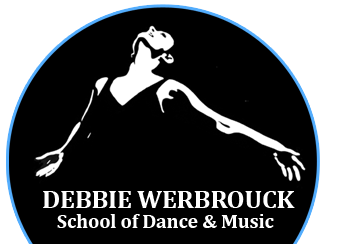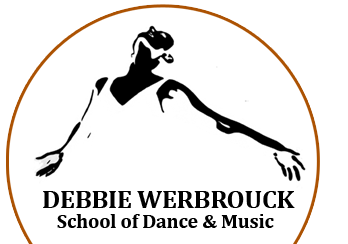Five Things Every Parent Should Know Before Choosing a Dance School
If you are new to dance you may wonder “aren’t all dance schools pretty much the same?” Does it really matter where you enroll? The answer is a resounding “Yes!” There are five main reasons that can make a huge difference in the quality of instruction that your child receives and in the quality of the service that parents can expect.
1. What is the focus of the school?
The school should be one where “everyone is welcome” and not cater to an “elite” clientele. The school should value the education of all students, not just those who are on a preprofessional track nor should it focus too greatly on competitions or mandatory performances. Performance opportunities should be available to students, but not the main focus of the classes.
A school that offers classes for all ages and one that provides a nurturing environment is a school where students of varying levels all feel comfortable and have their needs met. Parents should look for a school which has certified or degreed instructors with educational experience. Other important factors include a variety of educational and performance opportunities that are available but not required for students. The stability of the school and it’s faculty is also an important indicator of quality. If a studio has had many turnovers of directors or faculty, this may be an indication of internal problems.
Our school is recognized as providing a fun and nurturing environment for students of all ages while providing the highest quality in dance education. We recognize that for most students, dance will not be a career choice but an important element in development and self esteem. Our alumni include a variety of careers including doctors, nurses, teachers and parents as well as professional dancers who all recognize the important role of dance in their well rounded education. While additional, qualified teachers are added to our faculty on a regular basis, the majority of our teachers have been part of our faculty for ten years or more. The master certified educators who established the school are still at the helm.
2. What qualifications should teachers have?
It is important that teachers have educational experience in addition to their own dance training. Just as in any other profession, it is important that dance teachers participate regularly in continuing education. They should be well versed in their specialization (dance) and in teaching methods. Performance experience is important, but secondary to their ability to educate others.
Our faculty members are all certified and/or degreed; many with advanced certifications. Our faculty includes teachers who teach or have taught in preschools, elementary and high schools, and colleges as well as national dance education organizations teaching other teachers. All of our faculty members participate regularly in continuing education. Our curriculum has been developed by master certified dance educators who have national recognition in dance education and early childhood education. All of our faculty has performance experience, regionally and many internationally. In addition to our outstanding resident faculty, master teachers from across the country are made available to our students as guest artists.
3. What type of dance floor is used?
Dance is a very physical activity. A floor designed for the needs of dancers helps to reduce fatigue and improves performance. The best type of dance floor is a professional “floating” floor. A floating floor is one that is cushioned on wood “stringers” with air space and sub floor layers of wood covered with a vinyl surface designed for dance. Dancing on concrete, even one topped with a vinyl surface causes fatigue and, when used for extended periods, contributes to the chance of injury.
All of our schools have the floating floors that are used in the major dance schools across the country. All classrooms are also equipped with full length mirrors, barres and sound equipment.
4. Can I get immediate assistance and customer service?
In many studios, the teacher or studio owner conducts classes and does the administration. By trying to do two jobs at once, the class my suffer as the teacher has to use class time for customer service issues. Likewise, the studio may have no customer service available if the teacher is in a class. To have a good experience, it is important to choose a studio that can assist you with details like costumes or even if a teacher is occupied in a class.
Our schools have office staff on hand during all regular class times as well as daytime availability by phone, so that you can get immediate assistance. As in any activity, certain attire is required. Often, parents spend much of their valuable time searching for needed items, only to find inexperienced clerks, poor quality items and high prices. Each of our schools hosts a location or outlet of name brand, high quality at affordable prices with knowledgeable staff. No need to spend time trying to meet your needs only to receive improper fit or incorrect item or style.
5. I don’t know anything about dance, how will I know how my child is doing?
Providing information to parents is an important factor in having a positive dance experience. In many studios, the only knowledge available to parents is viewing the end of the year performance. Parents should be provided with information that will help them to understand the educational experience of their child if the parent has no personal dance experience.
Our schools provide written information to parents upon registration and in each semester. Students receive supplemental information to reinforce their learning experience. Parents have the opportunity to meet teachers at the initial class and experience the learning process during observation days. Teachers gladly discuss any questions or concerns during non-teaching times. Written information is also provided to parents for all school activities and opportunities available to students. Our website is also a convenient source of information.


